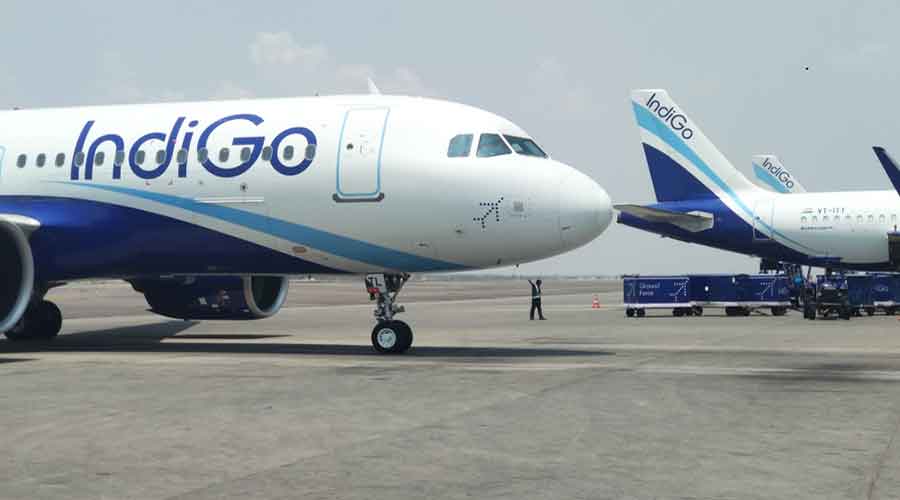IndiGo, the country’s largest budget carrier, posted its seventh straight quarterly loss, impacted by the Covid-19 pandemic and a spike in the cost of aviation fuel .
InterGlobe Aviation Limited, the parent of IndiGo, reported a net loss of around
Rs 1,436 crore in the quarter ended September, which was 20 per cent higher than the net loss in the corresponding period of the last fiscal.
The airline’s scrip closed 0.6 per cent lower at Rs 1,996.8 on the Bombay Stock Exchange. IndiGo had last reported profit in October-December 2019 at Rs 496 crore.
The losses, however, were much lower than the Rs 3,174.2 crore loss reported in the first quarter of the fiscal.
Revenue from operations crossed Rs 5,600 crore against Rs 2,741 crore. Other income of Rs 190 crore took the total income to nearly Rs 5,799 crore.
Expenses rose to Rs 7,234 crore from Rs 4,224 crore and expenditure on fuel almost tripled to nearly Rs 1,989 crore.
“We are encouraged by the pace of revenue recovery. We continue to work towards return to profitability in order to strengthen our balance sheet. With a modern fleet, dedicated employees and a stronger economic environment, we are well positioned to leverage all the growth opportunities around us,” Ronojoy Dutta, CEO of IndiGo, said.
The airline has total cash reserves of Rs 16,553.9 crore — Rs 6,351.6 crore of free cash and Rs 10,202.3 crore as restricted cash at the end of September 2021. IndiGo’s total debt is Rs 32,335.3 crore
IndiGo has 279 aircraft with a net increase of 2 aircrafts during the quarter. It operated a peak of 1,209 daily flights and a minimum of 759 flights during the quarter including non-scheduled flights. It provided scheduled services to 69 domestic destinations and various international locations through passenger charters and bubble flights.
Fewer flights
SpiceJet and IndiGo along with Air India will fly fewer flights during the winter schedule starting October 31 compared with the pre-Covid level. Vistara will have a higher number of flights, according to the winter schedule approved by regulator DGCA.
The 11 scheduled domestic airlines will fly 22,287 flights a week during the period starting October 31 and ending March 26 next year. The approved number of flights is nearly 4 per cent lower than the schedule two year ago.











